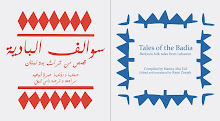"For its part, the Pentagon is becoming more like the C.I.A. Across the Middle East and elsewhere, Special Operations troops under secret “Execute Orders” have conducted spying missions that were once the preserve of civilian intelligence agencies. With code names like Eager Pawn and Indigo Spade, such programs typically operate with even less transparency and Congressional oversight than traditional covert actions by the C.I.A.
And, as American counterterrorism operations spread beyond war zones into territory hostile to the military, private contractors have taken on a prominent role, raising concerns that the United States has outsourced some of its most important missions to a sometimes unaccountable private army. "
I can tell from now that this is going to lead to one of those messes involving "civilians"...
...
And look here: the execution of "suspects". Why bother with tribunals?
"The officials said that they have benefited from the Yemeni government’s new resolve to fight Al Qaeda and that the American strikes — carried out with cruise missiles and Harrier fighter jets — had been approved by Yemen’s leaders. The strikes, administration officials say, have killed dozens of militants suspected of plotting future attacks. The Pentagon and the C.I.A. have quietly bulked up the number of their operatives at the embassy in Sana, the Yemeni capital, over the past year."
and here cluster bombs:
"A Navy ship offshore had fired the weapon in the attack, a cruise missile loaded with
cluster bombs, according to a report by
Amnesty International. Unlike conventional bombs, cluster bombs disperse small munitions, some of which do not immediately explode, increasing the likelihood of civilian causalities. The use of cluster munitions, later documented by Amnesty, was condemned by human rights groups."
http://www.nytimes.com/2010/08/15/world/15shadowwar.html?pagewanted=1&_r=1&th&emc=th
















+081.jpg)


